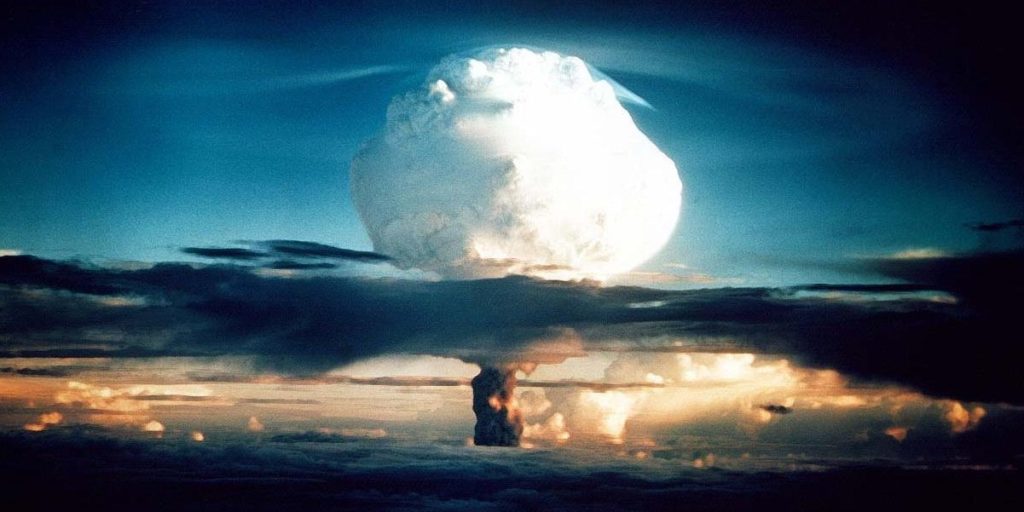Nuclear weapons are once more shaping how major states interact.
Others are reading now
Russia continues to use nuclear threats in its war against Ukraine, China is expanding its arsenal at high speed, and the United States is recalculating how to manage two nuclear rivals at the same time.
These tensions have triggered new debates about deterrence and raised uncomfortable questions about what might happen if a NATO state were ever attacked.
The return of nuclear pressure
Beijing and Moscow often speak about a multipolar world, but analysts like Matthew Kroening argue that the concept is mainly aimed at weakening the United States rather than empowering other countries.
In this renewed era of rivalry, nuclear weapons have become central to political signaling and military strategy.
Kroening told journalist Cristina Cileacu that many believed nuclear arms had become Cold War relics, yet both Russia and China are using them to influence global dynamics.
Also read
He pointed to Russia’s threats during the Ukraine war and China’s major arsenal expansion as signs that nuclear competition is fully back.
Washington’s message to adversaries
Trump’s suggestion that the United States could resume nuclear testing created uncertainty about whether he meant routine missile tests or a return to explosive tests last performed in 1992.
Kroening said the broader goal appeared to be sending a signal that the United States is not intimidated by Russia or China.
Russia’s reliance on nuclear intimidation has affected Western support for Ukraine, including public comments by U.S. officials acknowledging limits motivated by escalation fears.
Kroening believes this caution has encouraged more pressure from Moscow rather than preventing it.
Also read
If Russia uses nuclear weapons
Asked what would follow a Russian nuclear strike, Kroening stressed that the primary objective is deterrence so that such an event never happens.
If Russia attacked Ukraine, the U.S. response would differ from the response to an attack on a NATO state.
He explained that mutually assured destruction is not the only possibility. A limited American response could be used to show Russia that nuclear blackmail will not force the West to withdraw.
Reports that national security adviser Jake Sullivan privately warned Russia about U.S. involvement with conventional weapons suggest this form of deterrence is already in practice.
Alliances and shifting power
Kroening highlighted that modern power depends on economic strength, diplomacy and military capabilities combined.
Also read
China uses all three effectively, while Russia relies more heavily on military tools. Because these states coordinate, alliances among democracies remain critical.
He said that when the United States acts together with NATO and Asian partners, it represents more than half of global GDP, far more than the combined weight of Russia, China, Iran and North Korea.
This collective strength, he argued, is essential to shaping world affairs.
Deterring two nuclear rivals
For the first time, the United States must deter two nuclear superpowers simultaneously.
Kroening served on a congressional commission that concluded Washington needs to strengthen its nuclear forces, increase strategic capabilities in Europe and Asia, and pursue stronger missile defense.
Also read
He said this would be the first significant American nuclear buildup since the Cold War.
Romania and the Black Sea region
Cileacu asked about concerns in Romania after the reduction of U.S. troops at the Mihail Kogălniceanu base.
Kroening said the shift must be viewed within a global context, especially as some Pentagon officials see China as the primary long-term challenge.
He emphasized that capability matters more than troop numbers and that technology can offset smaller deployments.
He added that the Black Sea region remains strategically important, even if it receives less attention from the U.S. public than from security specialists.
Also read
Technology as a new battleground
Artificial intelligence and advanced technologies provide both opportunities and risks.
Kroening compared them to early transformative inventions, useful but potentially dangerous.
He said the U.S. strategy focuses on promoting innovation, protecting sensitive technologies from theft, and working closely with allies so democracies retain an advantage over competitors like China.
The future of international institutions
When asked whether global organizations still matter, Kroening said institutions made up of democratic states, such as NATO or the G7, remain effective.
Broader institutions like the United Nations, where Russia and China hold influential positions, often struggle to act.
Also read
He argued that democracies should use these bodies when possible but also be prepared to work around them when they fail to function.
Sources: Digi24, Atlantic Council interview with Matthew Kroening.


